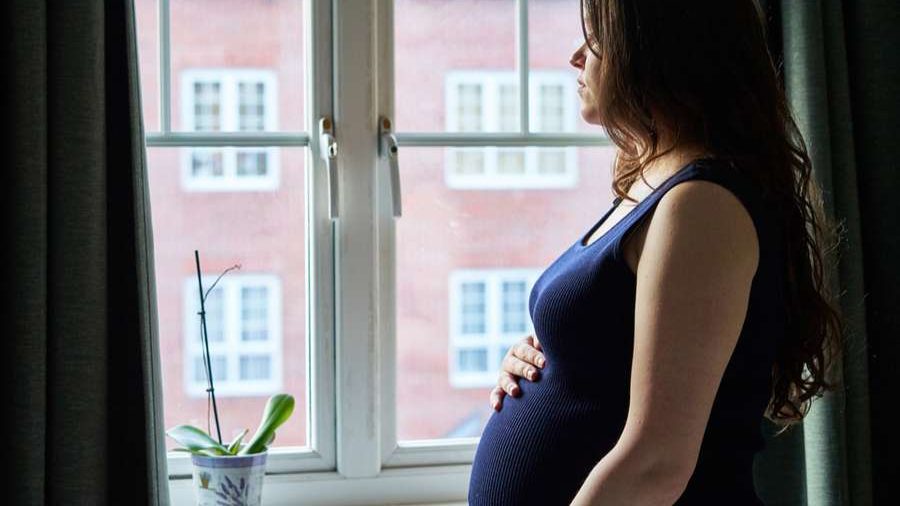A new report aims to measure the impact of pro-life pregnancy centers on women’s health care in the U.S., offering detail on the nearly 2 million women served last year.
The Charlotte Lozier Institute, the research arm of pro-life group Susan B. Anthony List, reported on Wednesday that more than 2,700 pro-life pregnancy centers around the U.S. served nearly two million people in 2019, providing nearly $270 million in services.
These centers included both brick-and-mortar establishments, but also mobile medical centers, serving both expectant mothers and post-abortive women, with the vast majority of facilities offering parental education, material assistance for mothers, and ultrasound tests.
“Pregnancy centers exist to serve and support mothers in the courageous decision to give their children life, even under the most difficult circumstances,” Chuck Donovan, president of the Charlotte Lozier Institute, stated on Wednesday. “This report calculates the impact of their mission of love in concrete terms.”
The report calculated that pregnancy centers offered around 732,000 pregnancy tests in 2019, and more than 486,000 free ultrasounds. They also provided women nearly 1.3 million packs of diapers and more than two million baby outfits.
In addition, they offered more than 291,000 clients parenting and prenatal education, and more than 21,000 clients post-abortive support.
Pro-life pregnancy centers have come under fire from pro-abortion groups in recent years, with groups like Planned Parenthood claiming that they use deceitful tactics to get women in the door who are considering abortion and then do not offer them information on abortion as an option.
In California, the state passed a law in 2015 that required pro-life pregnancy centers to offer women information about abortion and where they could obtain one. The centers, represented by the National Institute of Family and Life Advocates (NIFLA), brought a lawsuit against the state and its then-attorney general Kamala Harris, who is now the Democratic vice-presidential nominee.
The Supreme Court in 2017 ruled that the state’s requirement likely violated the free speech rights of pregnancy centers, and blocked the law from going into effect while lower courts reconsidered the case.
Pro-life groups warn that women would experience a steep decline in available health care centers if they had to close clinics; they also say that federally-funded health clinics around the U.S. would not be able to replace them amid a surge in women clients.
“They provide invaluable education as well as physical, medical, emotional and financial support,” said Anne O’Connor, NIFLA’s vice president for legal affairs. “Pregnancy centers provide these services at no cost, saving communities across the nation millions in tax dollars annually.”
Alison, a woman from Portland, Maine, whose testimony is in the report, said she was a post-abortive mother who was pregnant with her second child. She reached out to a pregnancy center ABBA, and said that she “started to grow a strength inside of me that wasn’t there before. I decided I didn’t need anyone else’s approval,” and that she was “truly amazed and overwhelmed by the amount of support I was given.”
“These women worked so hard and spent so much time researching options for me that I didn’t even know existed. They were there to support and guide me when no one else was, and I’m not sure I could ever express how much that means to me,” she said.
CLI says it compiled the report by surveying pregnancy centers from around the country, but included only those affiliated with a major network—Care Net, Heartbeat International, or the National Institute of Family and Life Advocates (NIFLA)—or those abiding by national standards of care and competence.
To quantify the services offered, the report used cost estimates for services and wages calculated by the Bureau of Labor Statistics for social workers, sonographers, and registered nurses.
Pro-life leaders have hailed the increase of ultrasound machines in recent years as a concrete way for mothers to see their child. Groups such as the Knights of Columbus have worked to supply pregnancy centers around the U.S. with more than 1,000 ultrasound machines—and nearly eight-in-centers surveyed by CLI offer ultrasounds.
“Thirty-five years have now passed since the introduction of life-revealing and life-changing ultrasounds into pregnancy centers, and their medicalization continues to grow and thrive,” Donovan said.
According to the report, 15% of the centers received government funding. For Planned Parenthood in its 2018-19 annual report, it reported that the nearly $617 million its affiliates received in government funding made up 37% of the overall revenue of both its national organization and affiliates.
Some centers also provide testing for sexually-transmitted diseases and infections (STD/STI).
“National health surveillance data from the Centers for Disease Control and Prevention (CDC) show that the American STD epidemic continues to be a significant public health challenge,” the report stated, adding that “undiagnosed STDs cause infertility in more than 20,000 women each year.”
“Medical pregnancy centers or clinics provide STI/STD testing and treatment to women, and at some locations to men, in direct response to this public health crisis,” it stated. “At pregnancy centers where STI/STD testing and treatment are not available, referrals for screening/testing and treatment are routinely made.”

